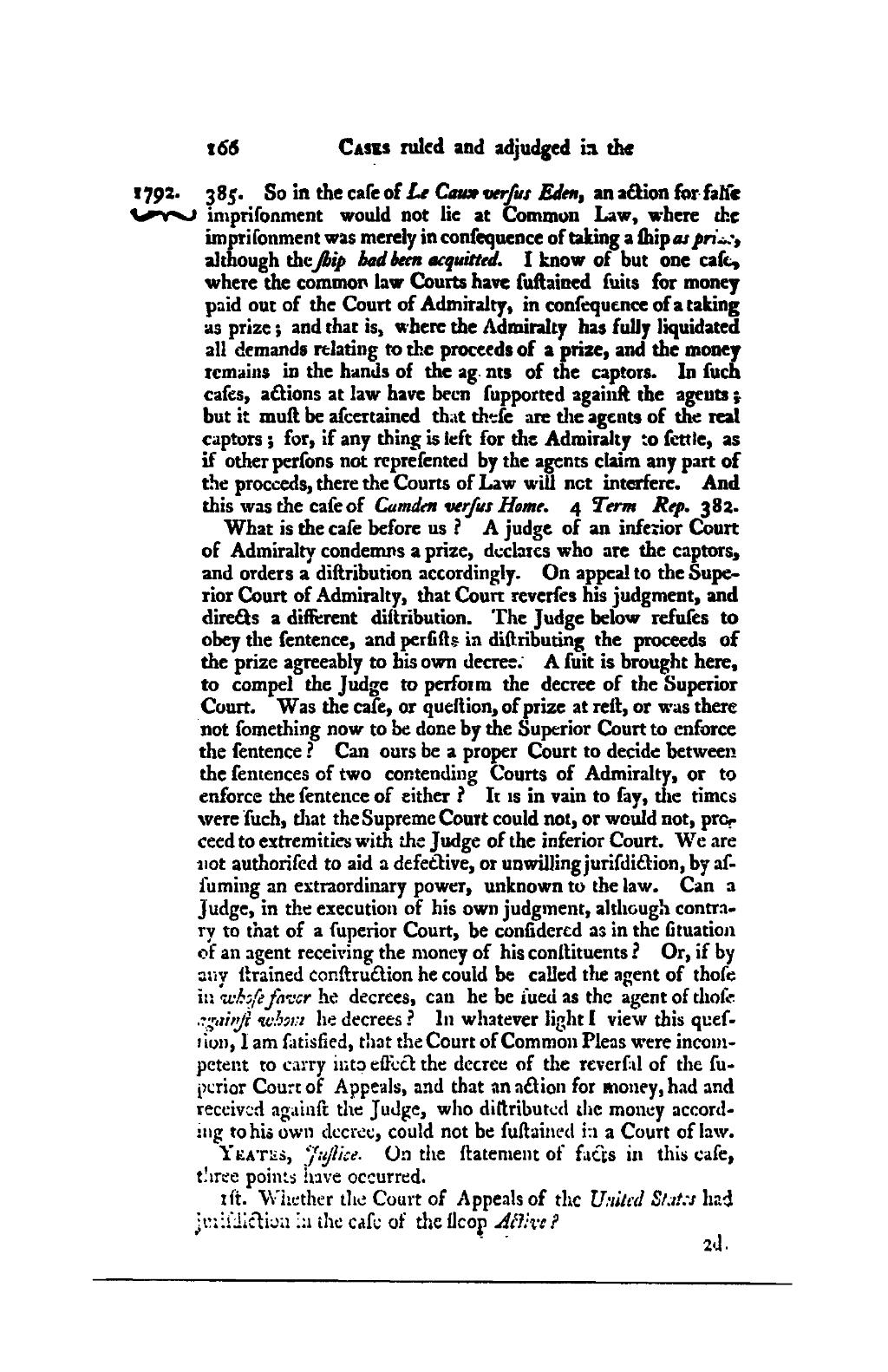!66 Casas ruled and adjudged in the I792· 385. So in the cafe of Le Cauxoerjiu Eden, an action for fall? www imptifonment would not lie at Common Law, where the im pri fonment was merely in confequence of taking a lhipa: pri}.-, although thejbq badbecn acquitted. I ltnow of but one cafe, where the common law Courts have fuftaiued fuits for money paid out of the Court of Admiralty, in confequence of a taking as prize; and that is, where the Admiralty has fully liquidated all demands relating to the proceeds of a prize, and the money remains in the hands of the ag. nts of the captors. In fuch cafes, actions at law have been fupported againll the agents ; but it mult be afecrtained that thefe are the agents of the real captors; for, if any thing is left for the Admiralty to fettle, as if other perfons not rcprefcnted by the agents claim any part of the proceeds, there the Courts of Law will not interfere. And this was the cafe of Camden vn;/'u.r Ham:. 4 Tern: Rep. 382. What is the cafe before us P A judge of an inferior Court of Admiralty condemns a prize, declares who are the captors, and orders a diltribution accordingly. On appeal to the Supe- rior Court of Admiralty, that Court reverfes his judgment, and directs a different diltribution. 'I'he judge below refufes to obey the fentence, and perlills in diltributing the proceeds of the prize agreeably to his own decree; A fuit is brought here, to compel the judge to perform the decree of thc Superior Court. Was the cafe, or queliion, of prize at tell, or was there not fomething now to be done by the Superior Court to enforce the fentence? Can ours be a proper Court to decide between the femences of two contending Courts of Admiralty, or to enforce the fentence of either P It is in vain to fay, the times were fuch, that the Supreme Court could DOI, or would not, pro,. ceed to extremities with the judge of the inferior Court. We are not authorifcd to aid a defe&ive, or unwillingjurifdiflion, by ai`- fuming an extraordinary power, unknown to the law. Can a judge, in the execution of his own judgment, although contra- ry to that of a fuperior Court, be conlidered as in the lituation of an agent receiving the money of his conllituents? Or, if by any {trained conltruétion he could be called the agent of thofe in ·wl~;,’é·jIw.cr he decrees, can he be {ucd as the agent of thofe .;;-airy? ·z¢,·.6::.rz he decrees? In whatever lightl view this qeef· aion, I am lintislied, that the Court of Common Pleas were incom- petent to carry into effeft the decree of the reverlinl of the fu- perior Court of Appeals, and that an aélion for money, had and received againh the judge, who dillributetl the money accord- ing to his own decree, could not be fullained in a Court of law. Yexrtas, _j¥y?i:e. On the ltatement of fairs in this cafe, three points have occurred. rft. Whether the Court of Appeals of the Uvitvrl S/;:!:: had _jezZ1`;li€`ti::n In the cali; of the llcop A¢‘7.’t·c? J 2 .
�
